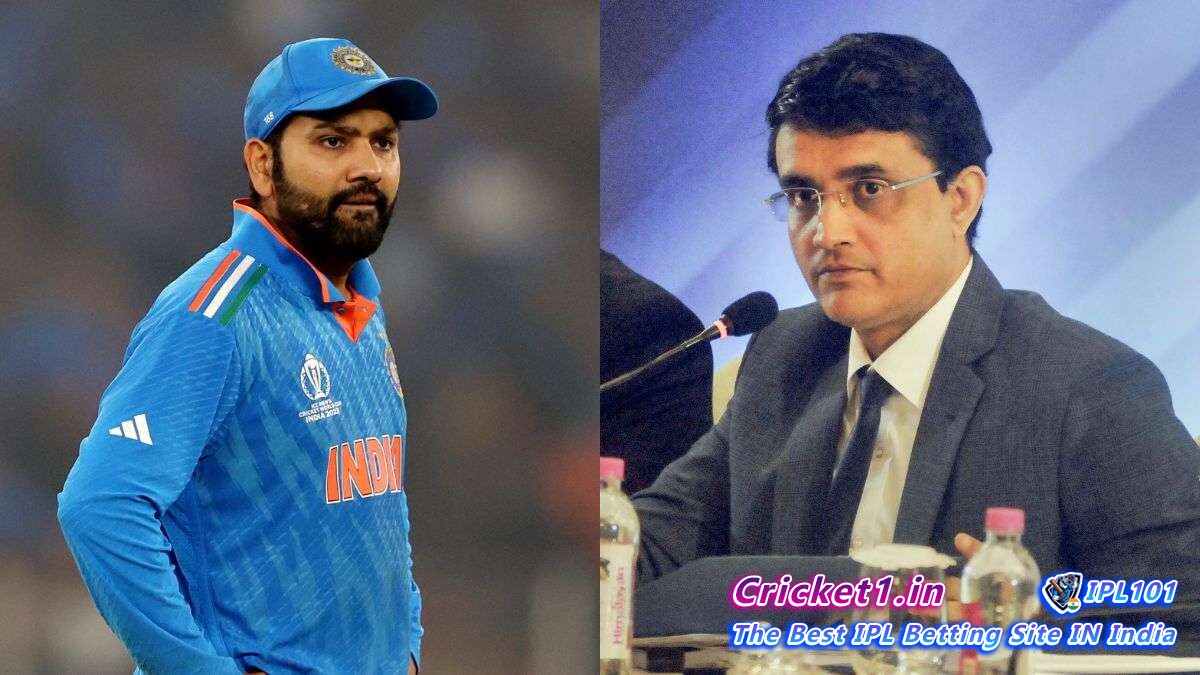
As the horizon of Indian cricket expands, the captaincy course often becomes a subject of intense discussions amongst enthusiasts and pundits alike. In the wake of the T20 World Cup next year, speculations were rife about the leadership of the Indian cricket team. While India’s all-format captain, Rohit Sharma, has been absent from the T20 arena since the last World Cup in November, fresh reports have surfaced pointing towards his reprisal of the captain’s role for the upcoming T20 World Cup.
Both Rohit Sharma and Virat Kohli took a respite from the white-ball leg of the South African tour, further fueling rumors that their time in the shortest format might be waning. Hardik Pandya assumed the mantle of the T20I captain since the last World Cup, a move that signaled the possible ushering in of newer talent in this format. Despite the apparent generational shift, the stature of the World Cup implies that the seasoned veterans still have a pivotal role to play.
Sourav Ganguly, the former captain of India and erstwhile BCCI president, has voiced his support for Rohit Sharma’s return to the captaincy, especially in light of the forthcoming T20 World Cup in the Caribbean and the USA. Addressing the media in Kolkata, Ganguly emphasized the importance of experience and track record in high-stake tournaments. “Once Rohit is back playing all formats, he should be the captain of India, because he has done so well in the World Cup,” remarked Ganguly, solidifying his stance on the matter.
Ganguly further accentuated the significance of having stalwarts like Rohit and Kohli in the squad, citing their impressive performances in the recently concluded World Cup. With the prevailing injury to Hardik Pandya, Suryakumar Yadav has been handed the captaincy for the T20 series against Australia and will continue in the role against South Africa. While India’s youthful prospects like Yashasvi Jaiswal, Ruturaj Gaikwad, and Rinku Singh have shown promise, Ganguly insists that World Cup pressure is a breed apart and India’s campaign will benefit from the seasoned expertise.
“World Cups are different than a bilateral series because the pressures are different. They have been exceptional this World Cup and hopefully six-seven months down the line in the West Indies they will be again at their best,” he added, underlining the qualitative disparity between a World Cup and other series. This reflects a recognition that the crucible of a World Cup distinguishes itself with its high-pressure environment.
In the backdrop of selectors’ decisions, alternate narratives are also playing out. For instance, the recent rest granted to Rohit and Kohli post the World Cup has been advocated by many, including Ganguly. He rationalized that scheduling a demanding T20 series shortly after such an event is not prudent, and for India to capitalize fully on their abilities, it is essential for them to be primed and ready for the Test matches.
The debate surrounding captaincy is not merely conjectural but encapsulates a broader discourse on strategy, foresight, and the inherent complexities of cricketing dynamics. With major tournaments like the World Cup, the stakes are amplified, and decisions taken now could resonate through to the actual performances on the global stage.
As the carousel of Indian cricket leadership continues to turn, the emphatic support of a cricketing luminary like Ganguly for Rohit Sharma adds weight to the prospect of his captaincy in the upcoming T20 World Cup. While the narrative of Indian cricket continues to evolve, one thing remains certain – the gravity of experience and proven competence in the furnace of World Cup cricket cannot be understated.

